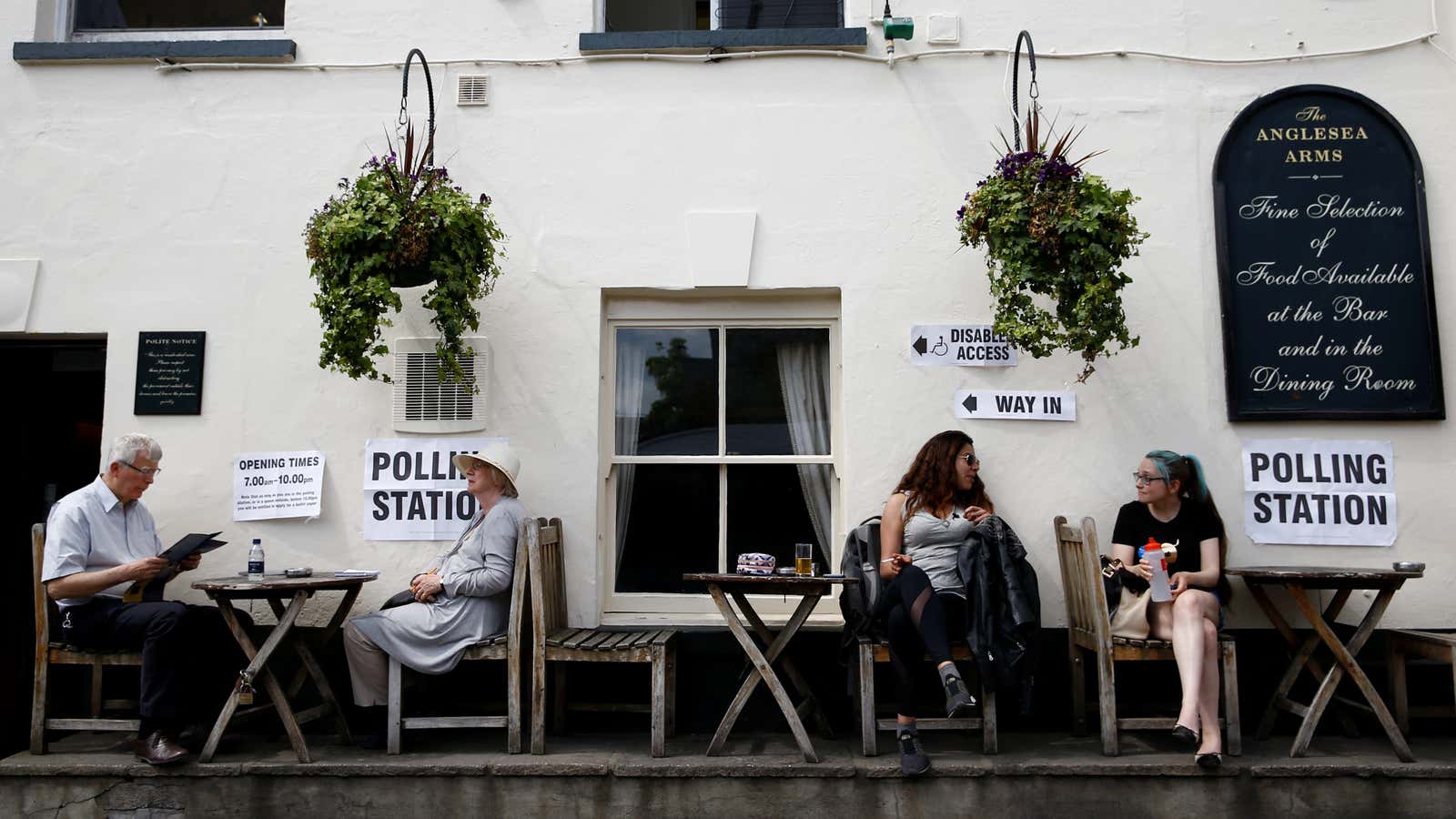Millions of Europeans will vote this weekend on the kind of future they envision for the EU, in the largest transnational democratic contest in the world. Perhaps the most important question is not which party or position they choose—pro- or anti-EU, populist or centrist—but whether they will vote at all.
Participation in European Parliament elections, in which voters select 751 members of the Brussels-based chamber, has been on the decline for years—from 62% in the inaugural election in 1979 to 43% in 2014. Since its last vote five years ago, the bloc has been battered by Brexit—just ask Theresa May—a migrant crisis, and a rise in populism and euroskepticism. Ahead of the next one lurks critical decisions on the environment, slow economic growth, and China’s increasingly assertive presence.
If these issues are not enough to get voters to turn out, what will? Perhaps it will be the descriptions of the elections as a “battle for the soul of Europe” or a “referendum on the future of the EU.”
As French president Emmanuel Macron wrote in a March editorial published in 22 languages in dozens of European newspapers: “It is for you to decide whether Europe and the values of progress that it embodies are to be more than just a passing episode in history.”
To be sure, 43% turnout is not too shabby compared with other elections (last year’s 49.2% turnout for the US midterms was the highest since 1914). Nor is voter turnout a perfect measure of the strength of a democratic project (see North Korea’s 99% participation rate).
But more than its institutions, (mostly) shared currency, open borders, and bureaucracy, the EU has been held together by shared faith in the idea of a united Europe. That faith is fraying, as is faith in the democratic model of government: A quarter of Europeans recently polled by the Center for the Governance of Change said they would prefer it if policy decisions were made by artificial intelligence instead of politicians.
For all the emotion the European project elicits among a segment of the population, the prevailing attitude is apathy.
This essay was originally published in the weekend edition of the Quartz Daily Brief newsletter. Sign up for it here.
